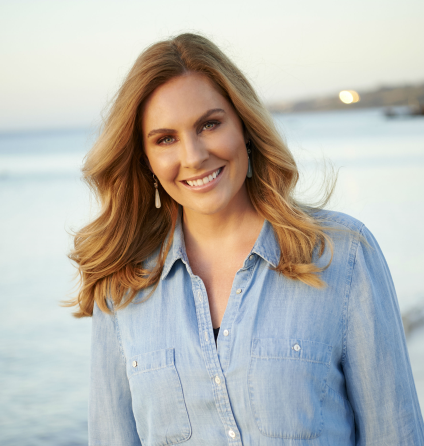Resilience over happiness: Why happiness is the outcome, not the goal
What if happiness was an outcome rather than a life goal? You've no doubt read a lot of hype in recent years around the concept of happiness. Where to find it, how to feel it, how to keep it.
Well here's my take on it: first, we don't need to be happy all the time, and second, if you're not happy it doesn't mean you are sad. I know! Breaking news. A full life encompasses it all, the entire gamut of emotions, the plethora of feelings and the richness of emotional experience. Love, fear, joy, sadness, surprise, anger – that's life!
In a society obsessed with the constant quest for happiness, you can find yourself dissatisfied and feeling like an underachiever. We've become so inundated with "think positive" messaging that we are almost fearful of feeling anything other than happy. The word "happiness" alone can incite anxiety. Why aren't I as happy as everyone else? Importantly, happiness can be momentary. You might in fact be setting yourself up for unhappiness if you live your life in a way that expects happiness to be long lasting.
Start making resilience a focus and the happiness will come anyway.
Being resilient doesn't mean you aren't allowed to have a bad day, or that you walk around spouting inspirational quotes to anyone who will listen. It does mean being conscious of the fact that your most trying moments in life can be the greatest life lessons and that a traumatic experience can become your personal triumph. Happiness is a consequence of how we manage and how we feel about what happens to us, and it's the people who have resilience who are happiest. The people who "bounce back" better and faster spend less time down and more time up – that's logical, right?
Resilient people are happier people because they:
• Have a greater ability to "reframe", to look for the positive, the better response, the best way out or forward.
• Don't stay long in victimhood, or look to allocate blame to others.
• More quickly move on from the negative emotions and self-manage their mindset.
• Choose courage and solution-focused thinking.
• Surround themselves with people who tell them the truth and want them to be successful in life.
• Don't let life's challenges define them.
• Consciously decide what particular meaning they will attribute to experiences.
People who take responsibility for themselves and their own decisions and actions are the happiest. And happier people spend most time with others who are optimistic and happy, and minimal time with people who drag them down – emotions are catchy things! In my experience as a coach, people who are resilient in their responses to what life throws at them are more peaceful and healthier – physically, emotionally and spiritually. They're happier, though they do not need to be happy all the time. The good news is that I have worked with enough people to know that all these behaviours and attitudes that happier people display can be learned.
Coaching questions to challenge your thinking:
1. What are the benefits to me if I am more resilient?
2. How can I identify opportunities that will build my resilience?
3. What mindset shifts would I need to make?
4. Who do I know who is resilient and how can I learn from them?
Everybody wants to be happy. Of course you do! But the next time you catch yourself feeling down in the dumps, and wishing you felt happier, step back and consider what you are learning from the experience. Be proud of how you are handling the situation and trust that next time life throws you a curve ball you will be stronger, braver and more prepared. It's so important that you build trust in your own ability to evolve. When you stop to celebrate how you survived something or stepped into a challenge, it's success and that's something to be happy about.
If you are considering how you can become a more resilient person, make sure you muster a little patience. When you are doing the work and creating the change, it can take a while to realise you've made the right choices. There are no quick fixes when it comes to building your resilience, you will have setbacks and some quick wins, so just keep going. Identify opportunities to stretch yourself. We know we learn most when we are uncomfortable and remember your values, life experiences and beliefs can guide your decision-making as you progress. Do a reality check on where you find yourself in life right now and then make plans for how you are going to look after yourself physically, emotionally, spiritually in a way that builds your resilience.
Lisa Stephenson is the founder of Who am I Projects and author of Read Me First (Major Street Publishing), a book filled with thought-provoking coaching questions, strategies for success and life's must-haves. Lisa draws on decades of experience as a global speaker, leadership consultant and success coach and has worked with some of the biggest global names, CEOs, elite athletes and entrepreneurs. For more information on Lisa go to www.lisastephensonconsulting.com.au.
popular
daily wisdom
“Kindness is the language that the deaf can hear and the blind can see.” – Mark Twain




_174_170_0c04.png)



